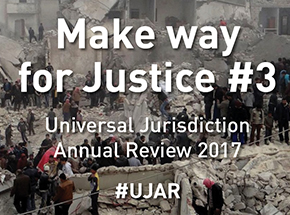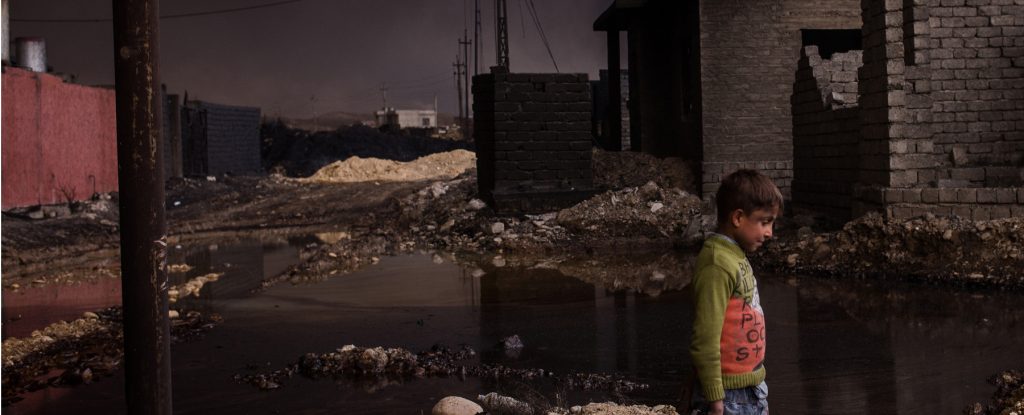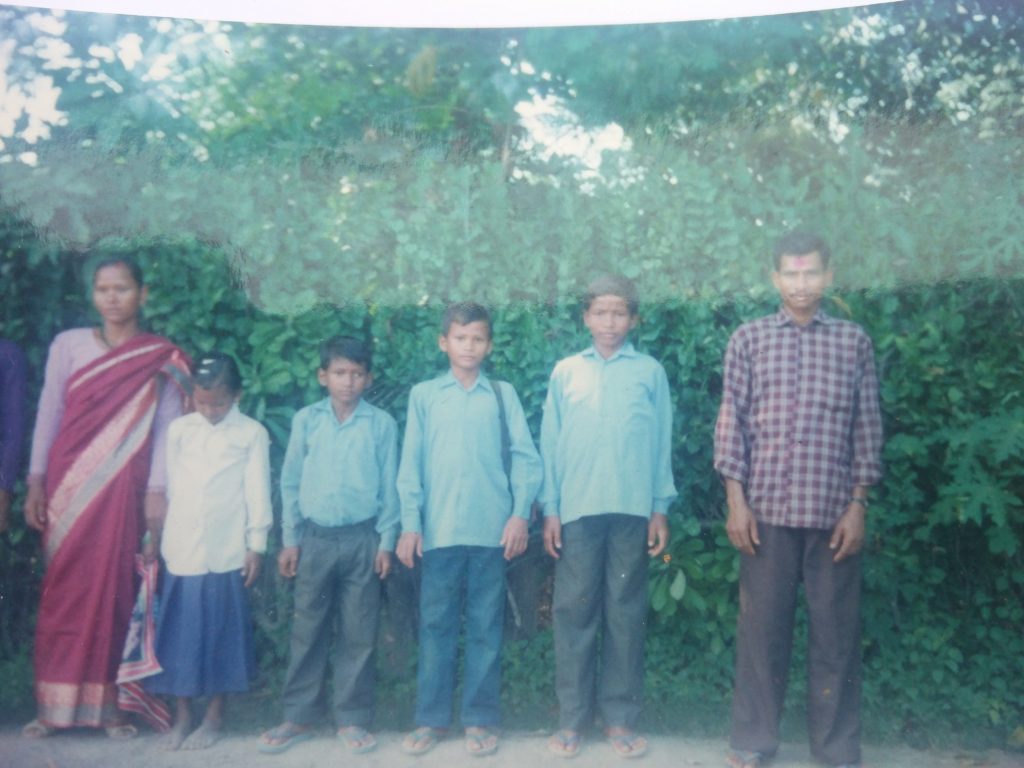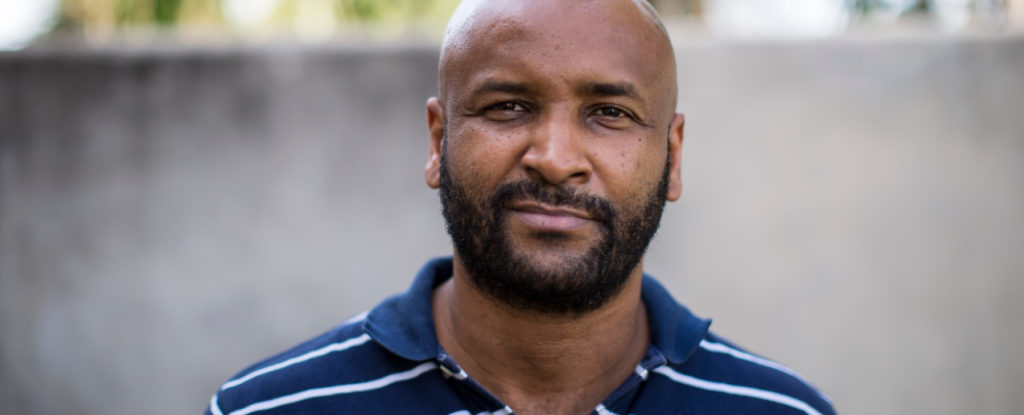Confirmation of Erwin Sperisen’s conviction: a victory for the fight against impunity
Geneva’s justice system has condemned Erwin Sperisen for 10 murders. The former Guatemalan Chief of Police was found guilty of extrajudicial murders and sentenced to life imprisonment. For the NGOs that denounced his actions, justice has now been done and this case will stand as an example in the continuing fight against impunity for State crimes.
On 12 May 2015 at 17.00 hours (UTC +2), the Criminal Division of the Court of Justice passed its verdict and found Erwin Sperisen guilty of 10 murders. The sentence was passed in Geneva’s Palais de Justice. The former Chief of Guatemala’s National Civil Police (PNC) was found guilty and sentenced to life imprisonment for 10 murders that occurred while his forces were regaining control of Pavon prison in Guatemala in 2006. As opposed to the initial trial, the appeal judges also condemned Mr. Sperisen for participating in the executions of the «El Infiernito» prison escapees. Erwin Sperisen’s conviction follows those of several other individuals also sentenced for the same crimes to long prison terms in Guatemala
For the NGOs, confirmation of Mr. Sperisen’s conviction by the Swiss courts sends a strong signal that State crimes cannot go unpunished. They have unanimously welcomed the result:
- Bettina Ryser, Secretary General of ACAT-Suisse: “We welcome the courage of the Guatemalan witnesses, victims and NGOs in denouncing the atrocities committed. This conviction shows that, despite all the obstacles, their efforts are gradually bearing fruit and they must continue to defend the rule of law.”
- Philip Grant, Director of TRIAL (Track Impunity Always): “The sentence passed is proof that the justice system is able to prove the involvement of the State and its representatives in serious human rights violations, and bring them to justice. We hope that Erwin Sperisen’s conviction will set an example, particularly to the Spanish authorities, who must now prosecute his immediate superior, former minister Carlos Vielman, for the same acts.”
- Gerald Staberock, Director of OMCT: “This decision sends a clear signal to the Guatemalan authorities, who must do everything in their power to guarantee victims access to impartial justice and to put an end to the endemic impunity that is enjoyed by torturers and the perpetrators of serious human rights violations.”
- Chantal Woodtli and Claude Reymond of the CGAS: “The impunity that has too long been enjoyed by the ruling class in Guatemala has been overturned. This decision is evidence of this, as are the significant demonstrations that have taken place to demand Vice-President Baldetti’s removal from office for involvement in corruption cases.”
Background to the Sperisen case
Trial
A trial was held from 15 May to 6 June 2014 before Geneva’s Criminal Court, which is composed of seven judges. Some 15 witnesses were called to testify during two weeks of hearings. His lawyers appealed and Erwin Sperisen was retried by Geneva’s Criminal Court from 4 to 6 May 2015, without any witnesses being heard. The verdict of this second hearing was made known on 12 May 2015. Mr. Sperisen may still appeal to the Federal Court but any hearing will only consider issues of possible violations of the law or arbitrary evaluations of the facts.
Procedure and arrest
- Nearly eight years ago, a coalition of NGOs denounced Erwin Sperisen to the judicial authorities for atrocities committed between 2004 and 2007. This coalition of NGOs campaigned tirelessly before Geneva’s prosecuting authorities for an investigation into this dual Swiss-Guatemalan national who lived in Geneva. An arrest warrant was also issued for him by Guatemala. On 31 August 2012, on the orders of Geneva’s General Attorney, Erwin Sperisen was finally arrested.
- As a Swiss citizen, Erwin Sperisen could not be extradited to Guatemala because the Federal Constitution prevents Switzerland from extraditing its own citizens: Switzerland is obliged to try them even if their crimes have been committed abroad. The Canton of Geneva alone was therefore competent to investigate the case.
- During the preliminary hearings, Mr. Sperisen was heard 11 times by Geneva’s Attorney General. Fourteen witnesses travelled from France, Guatemala and Spain and four rogatory commissions (international legal assistance requests) were sent to Austria, Spain and Guatemala. The investigation convinced the Geneva Prosecutor of Erwin Sperisen’s criminal responsibility. In January 2014, he decided to bring the accused before Geneva’s Criminal Court for the murder of 10 people.
Context
Guatemala is a country marked by considerable violence committed both by gangs and by the authorities, which have too long cohabited with organised crime and ignored the rule of law. And yet the State has a Constitution and laws, and it has ratified international conventions for the protection of human rights. As in Switzerland, neither murder nor the death penalty are permitted, and nor is the murder of prisoners. Members of the police force are there to ensure that the law is upheld and they do not have any right to life or death over their fellow citizens. Several other individuals involved in the same acts have also been brought to justice:
- Victor Soto Diéguez, former Chief of PNC Investigations, sentenced to a 33-year prison term in January 2015.
- Axel Arnoldo Martínez Arriaza and Víctor Manuel Ramos Molina, both former members of the PNC Investigations Team, sentenced to a 25-year prison term.
- Javier Figueroa, Erwin Sperisen’s former right-hand man, was acquitted by a jury in Austria in 2014. His brother Aldo Stéfano Figueroa Díaz was sentenced to a 15-year prison term in Guatemala.
- Carlos Vielman, former Minister of the Interior, is still awaiting trial in Spain. According to our sources, this trial could take place in Madrid within the next few months, before the Criminal Court (Sala de lo Penal de la Audiencia Nacional).











